Or lastly, put the matter thus: For more than a thousand years the Bible, collectively taken, has gone hand in hand with civilisation, science, law--in short, with the moral and intellectual cultivation of the species, always supporting, and often leading, the way. Its very presence, as a believed Book, has rendered the nations emphatically a chosen race, and this too in exact proportion as it is more or less generally known and studied. Of those nations which in the highest degree enjoy its influences it is not too much to affirm, that the differences, public and private, physical, moral and intellectual, are only less than what might be expected from a diversity in species. Good and holy men, and the best and wisest of mankind, the kingly spirits of history, enthroned in the hearts of mighty nations, have borne witness to its influences, have declared it to be beyond compare the most perfect instrument, the only adequate organ, of Humanity; the organ and instrument of all the gifts, powers, and tendencies, by which the individual is privileged to rise above himself--to leave behind, and lose his individual phantom self, in order to find his true self in that Distinctness where no division can be--in the Eternal I AM, the Ever-living WORD, of whom all the elect from the archangel before time throne to the poor wrestler with the Spirit UNTIL THE BREAKING OF DAY are but the fainter and still fainter echoes. And are all these testimonies and lights of experience to lose their value and efficiency because I feel no warrant of history, or Holy Writ, or of my own heart for denying, that in the framework and outward case of this instrument a few parts may be discovered of less costly materials and of meaner workmanship? Is it not a fact that the Books of the New Testament were tried by their consonance with the rule, and according to the analogy, of faith? Does not the universally admitted canon--that each part of Scripture must be interpreted by the spirit of the whole--lead to the same practical conclusion as that for which I am now contending--namely, that it is the spirit of the Bible, and not the detached words and sentences, that is infallible and absolute?
Practical, I say, and spiritual too; and what knowledge not practical or spiritual are we entitled to seek in our Bibles? Is the grace of God so confined--are the evidences of the present and actuating Spirit so dim and doubtful--that to be assured of the same we must first take for granted that all the life and co-agency of our humanity is miraculously suspended?
Whatever is spiritual, is eo nomine supernatural; but must it be always and of necessity miraculous? Miracles could open the eyes of the body; and he that was born blind beheld his Redeemer. But miracles, even those of the Redeemer himself, could not open the eyes of the self-blinded, of the Sadducean sensualist, or the self-righteous Pharisee--while to have said, I SAW THEE UNDER THE FIG-TREE, sufficed to make a Nathanael believe.
To assert and to demand miracles without necessity was the vice of the unbelieving Jews of old; and from the Rabbis and Talmudists the infection has spread. And would I could say that the symptoms of the disease are confined to the Churches of the Apostasy! But all the miracles, which the legends of Monk or Rabbi contain, can scarcely be put in competition, on the score of complication, inexplicableness, the absence of all intelligible use or purpose, and of circuitous self-frustration, with those that must be assumed by the maintainers of this doctrine, in order to give effect to the series of miracles, by which all the nominal composers of the Hebrew nation before the time of Ezra, of whom there are any remains, were successively transformed into AUTOMATON compositors--so that the original text should be in sentiment, image, word, syntax, and composition an exact impression of the divine copy! In common consistency the theologians, who impose this belief on their fellow Christians, ought to insist equally on the superhuman origin and authority of the Masora, and to use more respectful terms, than has been their wont of late, in speaking of the false Aristeas's legend concerning the Septuagint. And why the miracle should stop at the Greek Version, and not include the Vulgate, I can discover no ground in reason. Or if it be an objection to the latter, that this belief is actually enjoined by the Papal Church, yet the number of Christians who road the Lutheran, the Genevan, or our own authorised, Bible, and are ignorant of the dead languages, greatly exceeds the number of those who have access to the Septuagint. Why refuse the writ of consecration to these, or to the one at least appointed by the assertors' own Church? I find much more consistency in the opposition made under pretext of this doctrine to the proposals and publications of Kennicot, Mill, Bentley, and Archbishop Newcome.














